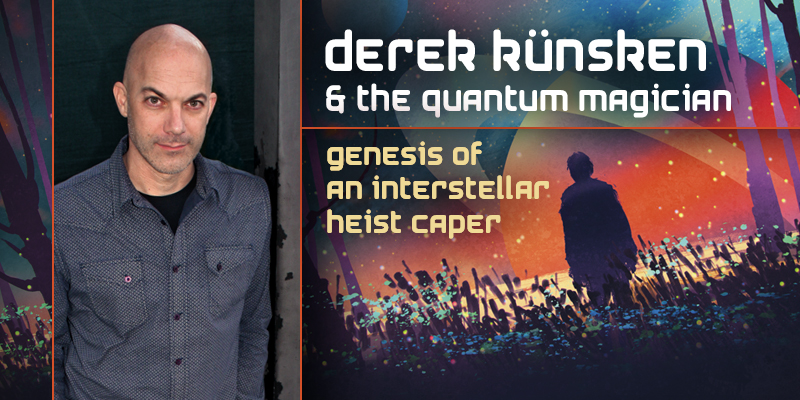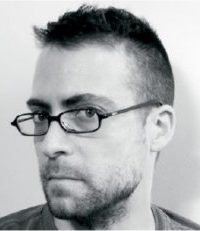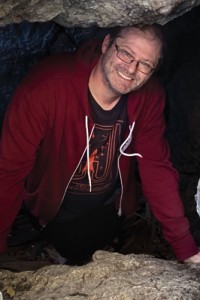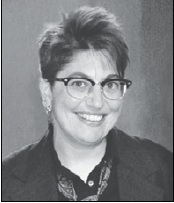Derek Künsken: Genesis of an Interstellar Heist Caper

DEREK STÉPHANE KÜNSKEN was born March 13, 1971 in Cobourg, Ontario, Canada. He attended the University of Guelph as an undergraduate and earned a master’s degree in molecular biology at McMaster University, but he left science behind to work with street children in Honduras. After returning to Canada he worked various jobs until he joined the Canadian Federal Public Service, working on refugee and diplomatic postings in Colombia and Cuba. He now lives in Ottawa with his son.
Künsken began publishing SF with “Tidal Maneuvers” in 2006, and began publishing short fiction regularly in magazines; “The Way of the Needle” (2012) won the Asimov’s Reader Poll. His debut, space opera heist novel The Quantum Magician, was serialized in Analog in 2018 before appearing in book form later that year. Sequel The Quantum Garden is forthcoming.
“Like every writer, when I was young I told my parents, ‘I want to be a writer,’ and they told me, ‘Get a real job.’ I wrote a book in grade four, and my teacher published it, copies for everyone in the class – and it was great. It made me feel like a writer. When I was 15, I started my first serious, real novel, intending it to be something like Tarzan or John Carter of Mars. It took me until age 25 to finish it, while I finished high school and two university degrees.
“I didn’t understand what my process was, either. I waited for inspiration, rather than being somebody who wrote every day. I also had no access whatsoever to fandom. I didn’t know there were books on how to write. I did not really meet another writer until my second year of university. By the time I was 25, I left my master’s degree and submitted a book to Tor. I got a rejection, but I saw where they had marked things on the physical manuscript. They had read some parts and written ‘Cool’ in some places, and that was nice. When I reread it, I saw lots of flaws, and said, ‘I should write something new.’
“When I got hired by the Foreign Service, I started a new space opera book. I found out by the time I was 30 that it probably wasn’t salable either – it was a lot of the rubber-headed aliens that you see in Star Trek and stuff like that, because I hadn’t been exposed to much prose SF. I was a very poor and non-discriminating reader. I read mostly comic books, which is not useful for learning to write novels, because it’s an entirely different form. I read pulp, which is not helpful for getting published now – you don’t want your doctor reading medical texts from 1912. I hadn’t read the right stuff, I didn’t read short fiction, and I didn’t know how to learn to be a writer. You can only learn so much by trial and error. On my thirtieth birthday, a friend working at the American embassy in Bogotá gave me a book: Orson Scott Card’s How to Write Science Fiction and Fantasy. That suddenly opened up a whole new world. I also started reading Locus.
“What I learned was that I needed to read most of the Hugo and Nebula winners, and I started doing that. I started buying all these used books and having them shipped down to Bogotá. Bogotá is really rich – you can get everything you can get in Montreal for about half the price – but it’s all in Spanish. I also subscribed to Asimov’s and Analog and started reading those. Getting into short fiction wasn’t easy for me, and it was hard for me to find an editor whose taste I liked almost all the time. That didn’t happen for me until I found Escape Pod, but Escape Pod, and later PodCastle, gave me exactly what I wanted. Their editorial voices fit me – there were very few stories I didn’t like.
“I owe so much to PodCastle and Escape Pod, and when I first got to meet some of the people who worked on those – like Rachel Swirsky, Ann Leckie, Sarah Healy, and so on – I fanboyed and said, ‘My goodness, you don’t know how much your magazines taught me.’ Once I was back in Ottawa I listened to 400 or 500 episodes over the course of maybe 18 months. That was when my short fiction started going. Listening to enough of them made me start internalizing the rules.
“I have lots of flaws, but the ones I worried about were landing the ending, understanding the structure and the plot, and making things go right. What I would often do was listen to stories, and sometimes just as an exercise say, ‘What was the inciting incident? Is this something I should analyze for the three-act structure? If not, what drove my attention? Why was I interested?’ Even now when I’m reading something I’ll pause it at the halfway point, and make myself some notes on what I think the ending’s going to be – just to see if I can guess it. Then I try to determine from the middle to the ending what misdirection they’re using. I have so much still to learn.
“It was a very frustrating way to learn, and it took me about five years until I made my first sale, to On Spec when I was 35. I was pretty pleased with that, and I mean, that was it. That was my first real validation as a writer. My second sale was not long after that to Sheila Williams at Asimov’s. Sheila’s been very supportive of me. I sold her that story and after that, the next three or four or five submissions were rejected, but all with supporting and encouraging notes.
“In 2009, I met Sheila at Anticipation in Montreal, and I introduced myself and thanked her for the nice rejections she’d been giving me, because I appreciated it. She gave me a lot of writing advice then and said, ‘Just right now, for your voice, you need to write less dark.’ I obviously took that to heart, because that’s Sheila Williams saying that. Since then, almost everything I’ve sent her has been an acceptance. Being in Asimov’s has given me every other benefit I’ve gotten, right? Because publishing in Asimov’s and having won the Reader’s Award was what made my agent interested in me. Being in Asimov’s got me all my foreign sales, because it’s read by foreign editors. My foreign sales got me over to China several times in the past year. Everything seems to come down to getting into that magazine. Maybe if my voice had worked better in F&SF, say, maybe I would have had different opportunities – I don’t know. I can see the opportunities I’ve gotten here, because I can see the lines of causality from being a writer whose work Sheila likes.
“The Quantum Magician is my first published novel, but it’s the sixth novel I wrote. There were five unsuccessful ones. Now I have an agent, Kim-Mei Kirtland; she’s really good. I went back to her and gave her my fourth novel, which I still had a lot of faith in. She said, ‘I’m not sure how to help you with this,’ which I really appreciate. I started to see some of the flaws in it after that. I also gave her my fifth novel, and she gave me a bunch of notes on it, and saw promise in it. When I saw the amount of notes, I did the math and said, ‘I can probably write a new novel faster than I could fix that one.’ I may come back to it someday, but not right now.”
Interview design by Stephen H. Segal. Photo by Liza Groen Trombi.
Read the full interview in the February 2019 issue of Locus.
 While you are here, please take a moment to support Locus with a one-time or recurring donation. We rely on reader donations to keep the magazine and site going, and would like to keep the site paywall free, but WE NEED YOUR FINANCIAL SUPPORT to continue quality coverage of the science fiction and fantasy field.
While you are here, please take a moment to support Locus with a one-time or recurring donation. We rely on reader donations to keep the magazine and site going, and would like to keep the site paywall free, but WE NEED YOUR FINANCIAL SUPPORT to continue quality coverage of the science fiction and fantasy field.








